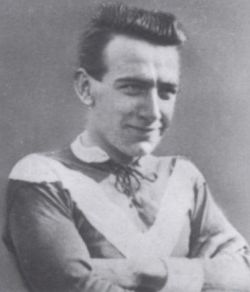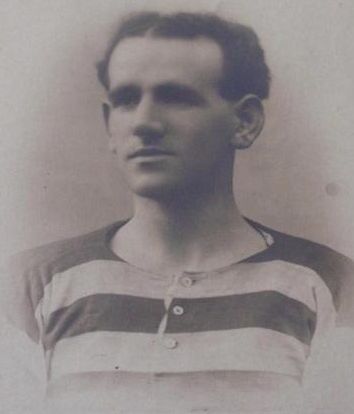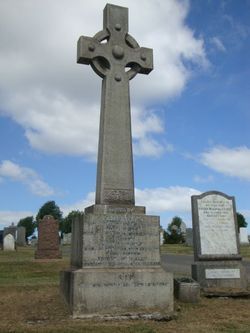Bernard "Tommy" (& Arthur) McInally

Tommy McInally (pictured immediately left) was born Bernard but as a young child his name changed. Why is unknown. He was the last of eight children of Francis, an Irish-born labourer and Annie Slaven, Barrhead-born but of Irish parents. However, the whole family, following the death of their father at just forty-three in 1903, would of necessity be brought up still in Barrhead by their mother, albeit with some Slaven support from two doors down.

And football would be a part of family life a little before the mercurial talent of Tommy became apparent. His elder brother, Arthur, who would become by profession a teacher and a referee of note, was before that a centre-half of a certain quality, boasting this string of junior and then senior clubs - St Mungo’s Academy, Barrhead Bellmont, Kirkintilloch Rob Roy, St Mirren Juniors and Croy Celtic, then Celtic, Ayr, Dumbarton Harp, St Mirren, Abercorn, Dunfermline, Armadale, Alloa, Clyde and St Bernard’s.
And it was two of these clubs that are said to and are known also to have played an important part in the future of young Bernie cum Tommy. He would briefly play for Croy, then spend two seasons from eighteen at St. Anthony's in Govan, receiving a junior cap, before being signed, as an inside-forward, to Parkhead, where he was a sensation; a hat-trick in his first senior appearance, fifteen goals in his first nine games, top-scorer in his first and second seasons.
In fact he was regarded as something of a footballing genius, an expert taker of corners, with ball-control and vision and a telling-passer but he was also temperamental, prone to inconsistency, and had a temper on him. It led him within three seasons first to being dropped and then in 1922 transferred to Third Lanark. But there in three years the same pattern of first success and then problems re-emerged and that might have been it but Celtic needed a goal-scorer and decided not just to take him back into the fold but also make him captain. He rewarded them with the League Championship that season and the Cup the next, with in between for him two caps.
However, for the third time the same indisciplines reared their head and after Celtic had been beaten 4-0 by Rangers in the 1928 Cup Final he was once more on his way, although in this case any element of scapegoating seems unfair. The game was played in a gale, Celtic had the wind at their backs in the first half, 0-0 at half-time, and no less than The Times of London reported "McInally alone revealed the necessary resource to control the ball either against or with the wind".

This time, however, the move would be Down South to Sunderland, where he lasted just a little more than a season, despite making thirty-six starts, scoring three times and the club finishing ninth in the English First Division. In fact he was given a free transfer and at the age of not quite thirty that was more or less it. By 1931 he was permanently back in Scotland, to run a betting shop in Paisley, settling into life in Barrhead once more, then working as a Commercial Traveller, never marrying and in 1955, said to be an alcoholic, passing away at just beyond his fifty-sixth birthday. He is buried in St. Conval's Cemetery north of Barrhead with two of his Slaven uncles.
Birth Locator:
1899 - 248, Main St., Barrhead, Glasgow
Residence Locations:
1901 - 248, Main St., Barrhead, Glasgow
1911-21 - 28, Carlibar Rd., Barrhead, Renfrewshire
1955 - 111, Paisley Rd., Barrhead, Renfrewshire
Death Locator:
1955 - 111, Paisley Road, Barrhead, Renfrewshire
Grave Locator:
St. Convals Cemetery, Barrhead, Renfrewshire
Back to the Queen's Park & Southern Suburbs Trail
or the SFHG Home page